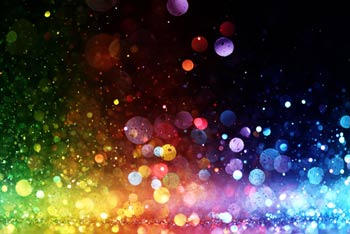 I’m a huge fan of science fiction. When I go shopping for new books or when I’m surfing for new movies and TV shows to watch, I almost always hit the sci-fi section first. But I don’t limit myself to this one genre. On any given day, you can find me reading historical fiction, children’s books, and thrillers (to name a few).
I’m a huge fan of science fiction. When I go shopping for new books or when I’m surfing for new movies and TV shows to watch, I almost always hit the sci-fi section first. But I don’t limit myself to this one genre. On any given day, you can find me reading historical fiction, children’s books, and thrillers (to name a few).
One of my favorite books of the past few years was The Invention of Wings by Sue Monk Kidd. It’s a long cry from science fiction. Set in the antebellum South, it’s the story of two girls who are the same age: Sarah, who is the daughter of a plantation owner and Hetty, who is a slave on the plantation. This intriguing (and sometimes heart-wrenching) story is told from both girls’ point of view in alternating chapters that are beautifully written. I read it over a year ago, and I still find myself constantly thinking about it.
More recently I read a book called Where the Mountain Meets the Moon by Grace Lin, a delightful children’s chapter book based on ancient Chinese fairy tales. It’s about a little girl who sets out on a quest to lift her family out of poverty. It’s full of magic and adventure, and I found it hard to put down.
The best thriller I read in recent years was the Millennium series by Stieg Larsson, which most people will recognize by the title of the first book in the series: The Girl with the Dragon Tattoo. Fast paced yet packed with detail — it’s a riveting and sometimes shocking story featuring one of my favorite protagonists in literature: Lisbeth Salander.
As much as I love science fiction, I can’t imagine reading it exclusively. These other genres enrich both my reading and my writing.
The Genre Trap
In the writing industry, it’s easy to get trapped in a genre mindset. You’re a mystery writer or a children’s author. You write paranormal romance or self-help books. We’ve convinced ourselves that readers limit themselves to single genres. There are romance readers and horror readers, science fiction fandom and literary fiction aficionados.
But I find that most readers (and writers) like an assortment of genres. In fact, I’ve never met anyone who reads solely in a single genre. Oh sure, people go on binges and they certainly have their favorites, but most of us like a little variety. So the idea that we would write or market ourselves exclusively in a single genre seems rather silly.
The Human Condition Knows No Genre
I was recently reflecting on my favorite TV show, Lost. It’s been called science fiction, but I think Lost transcends genre. At its heart, it’s an adventure. But Lost encompasses every genre you can think of: mystery, drama, action, comedy, horror, romance, thriller, and even western. The show is a roller coaster that takes you through the entire spectrum of human emotion; at any given moment you could be laughing, crying, gripping the edge of your seat, or sitting there wondering what the hell is going on.
It’s often said that great literature explores the human condition. I can’t think of a better way to explore the human condition than taking readers on a ride through multiple genres and a wide range of emotions. Most stories give us a slice of life: they are firmly set in a single genre and are emotionally monotonous. That’s why stories that transcend genre and give us a dynamic spectrum of emotion feel like truer reflections of real life.
